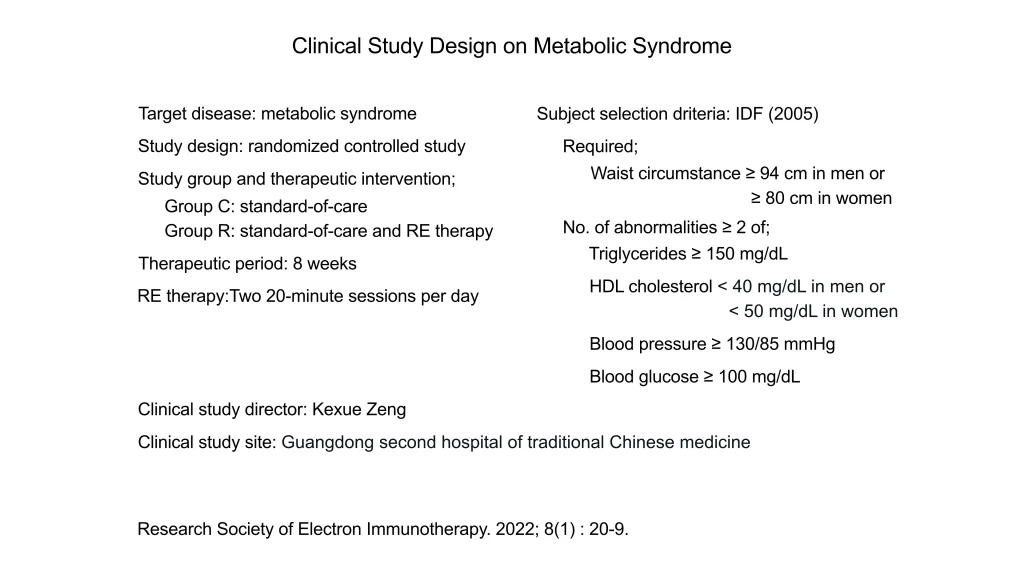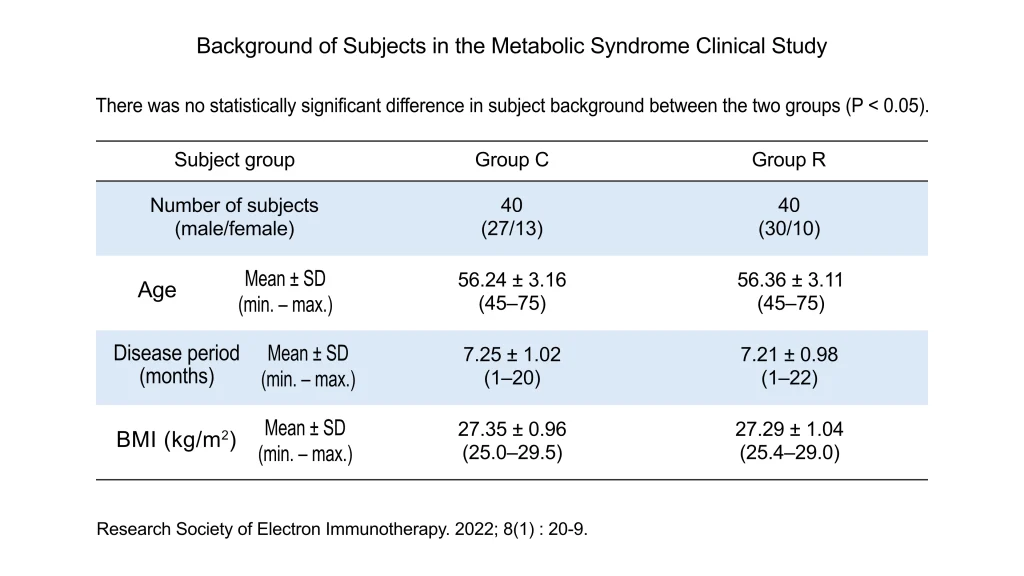The following is an overview of a clinical study on the effects of RE therapy on metabolic syndrome.
Study design

Subjects background

Outcomes
The therapeutic effects of Groups C and R were compared for 19 outcomes. All outcomes in Group R were statistically significantly better than those in Group C.
Obesity
Adipocytokine
Lipid Metabolism
Blood Pressure
Glucose Metabolism
- (9) fasting glucose, (10) 2-hour postprandial glucose
- (11) HbA1c
- (12) fasting insulin, (13) 2-hour postprandial insulin
- (14) HOMA-β, (15) HOMA-IR
Renal Function
Oxidative Stress Markers
The implications of this study
This study showed that various symptoms can be improved by adding just one therapeutic method, RE therapy, to the standard-of-care. If drug therapy were to achieve similar outcomes as the RE therapy in this study, many medications would likely be required. In these situations, the risk of drug interactions and therapeutic costs also increase.
The above suggests that RE therapy is suitable for diseases or conditions with multiple conditions that need to be improved, such as metabolic syndrome and multiple chronic diseases associated with aging. It is also inferred to be suitable for the preventing of chronic diseases.
